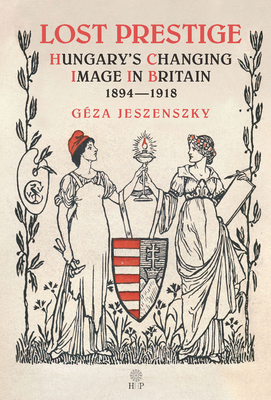Lost Prestige: Hungary's Changing Image in Britain 1894--1918

Lost Prestige: Hungary's Changing Image in Britain 1894--1918
This book is not about how present-day Hungary has recently lost so much of the prestige it won with its heroic uprising in 1956 and its role in the fall of the communist satellites in 1989. Rather, it is the story of the formation of Hungary's image abroad before and during World War I.
G za Jeszenszky chronicles how the very favourable reputation of Hungary and the Hungarians, established in their 1848-49 war for a liberal constitution and independence from Habsburg absolutism, was seriously damaged in the decade preceding the First World War. He shows its causes: the internal political crisis in 1904-06 undermined the notion that Hungary was a stabilizing and liberalizing factor in the Habsburg Monarchy; the almost daily London Times reports by its extremely well-informed correspondent, H.W. Steed, exposed the short-sighted social and electoral policies of Hungary's political elite; and increasing awareness of the unfair treatment of the non-Hungarian national minorities, as revealed (with bias and exaggeration) by the political writer R.W. Seton-Watson. All of which coincided with the ascendancy of progressive social and political reforms in Britain, in the light of which Hungary appeared "backward". Finally, what counted most, was that despite its strong Anglophile sympathies Hungary found itself among the enemies of Great Britain in the Great War, on the side of Germany, the power which was seen as a threat to the British Empire and its command of the seas. The relationship between foreign policy and the national image is followed through the chronological account of the metamorphosis of Hungary's image in Britain. The book also explores the alleged similarities between English and Hungarian society and values. A final chapter describes how succeeding generations of Hungarians of various political stripes reflected on that lost prestige and its role in the making of the national tragedy, the Treaty of Trianon.
PRP: 255.00 Lei
Acesta este Pretul Recomandat de Producator. Pretul de vanzare al produsului este afisat mai jos.
229.50Lei
229.50Lei
255.00 LeiLivrare in 2-4 saptamani
Descrierea produsului
This book is not about how present-day Hungary has recently lost so much of the prestige it won with its heroic uprising in 1956 and its role in the fall of the communist satellites in 1989. Rather, it is the story of the formation of Hungary's image abroad before and during World War I.
G za Jeszenszky chronicles how the very favourable reputation of Hungary and the Hungarians, established in their 1848-49 war for a liberal constitution and independence from Habsburg absolutism, was seriously damaged in the decade preceding the First World War. He shows its causes: the internal political crisis in 1904-06 undermined the notion that Hungary was a stabilizing and liberalizing factor in the Habsburg Monarchy; the almost daily London Times reports by its extremely well-informed correspondent, H.W. Steed, exposed the short-sighted social and electoral policies of Hungary's political elite; and increasing awareness of the unfair treatment of the non-Hungarian national minorities, as revealed (with bias and exaggeration) by the political writer R.W. Seton-Watson. All of which coincided with the ascendancy of progressive social and political reforms in Britain, in the light of which Hungary appeared "backward". Finally, what counted most, was that despite its strong Anglophile sympathies Hungary found itself among the enemies of Great Britain in the Great War, on the side of Germany, the power which was seen as a threat to the British Empire and its command of the seas. The relationship between foreign policy and the national image is followed through the chronological account of the metamorphosis of Hungary's image in Britain. The book also explores the alleged similarities between English and Hungarian society and values. A final chapter describes how succeeding generations of Hungarians of various political stripes reflected on that lost prestige and its role in the making of the national tragedy, the Treaty of Trianon.
Detaliile produsului








